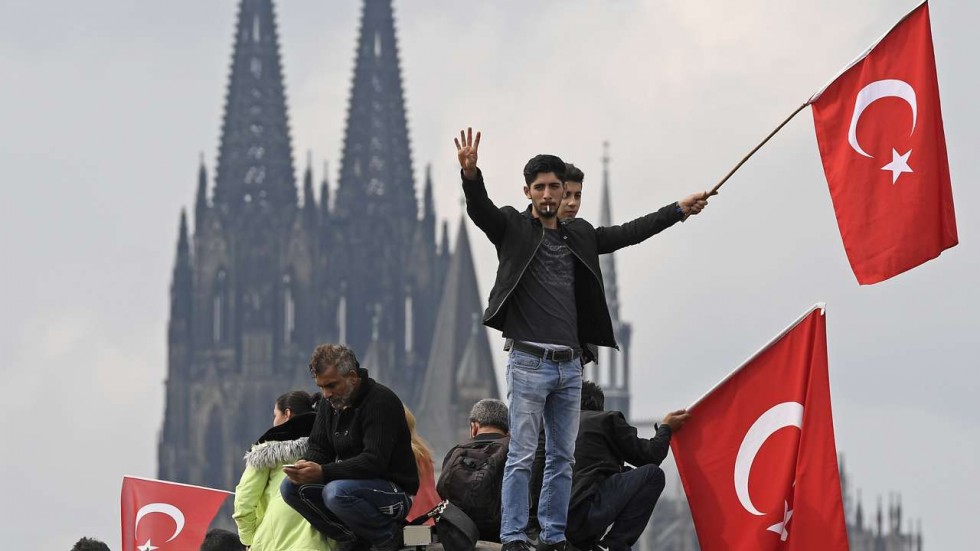

Tensions between Germany and Turkey are on the rise again. Over the past week, local authorities in Germany have cancelled a spate of political rallies in support of President Erdogan’s upcoming referendum, including one in Cologne planned for Sunday.
Home to some three million Turkish people and their descendants, Germany is a key battleground for hearts and minds ahead of the April 16 vote. But authorities in the country are unenthused by the prospect.
Ankara has reacted angrily, summoning the German ambassador and accusing Berlin of “working for a ‘no'” result. The foreign ministry denies this, saying the federal government has “zero influence” over whether local authorities cancel the events or not.
The spat has the potential to get even nastier; the cancellation of a rally in the town of Gaggenau on Thursday led to someone threatening to bomb the local government.
More broadly, tensions between Berlin and Ankara have yet to subside after Mr Erdogan’s sweeping crackdown on political opponents and the media following last June’s failed coup. If the strained relationship snaps, Turkey may renege on a critical deal designed to prevent another migrant surge.
Dig deeper: Erdogan’s Turkey: towards a new sultanate?
Simon is the founder of Foreign Brief who served as managing director from 2015 to 2021. A lawyer by training, Simon has worked as an analyst and adviser in the private sector and government. Simon’s desire to help clients understand global developments in a contextualised way underpinned the establishment of Foreign Brief. This aspiration remains the organisation’s driving principle.

